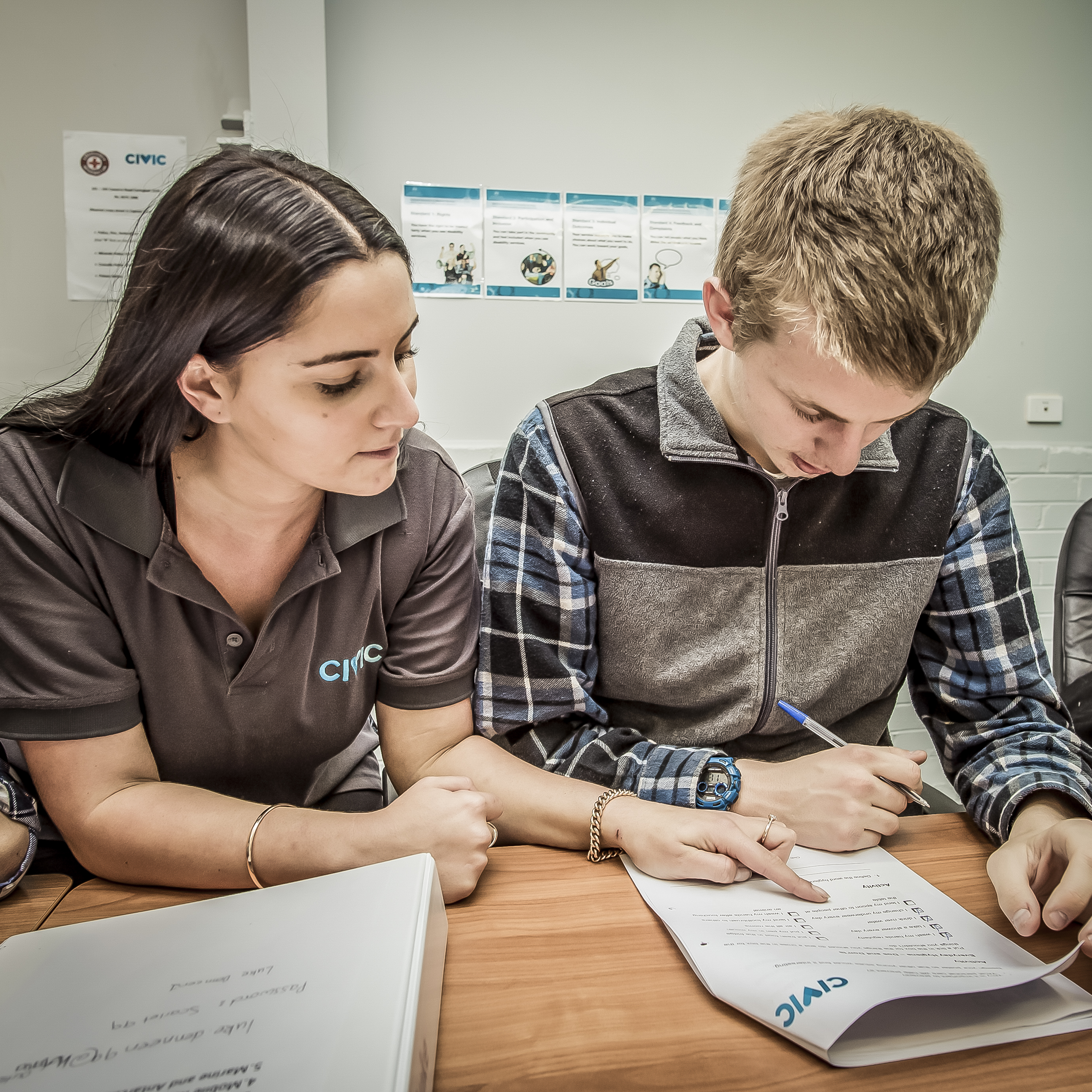The Important Link Between Special Needs Providers and Effective Home Care Solutions
The relationship in between disability services and home treatment solutions is important for enhancing the lives of people with impairments. Disability services provide essential sources and support. On the other hand, home treatment services provide personalized aid in acquainted atmospheres. This partnership advertises independence and social inclusion. Yet, the specifics of exactly how these aspects engage continue to be intricate. Recognizing this link can expose new understandings into enhancing take care of those in need. What are the implications for individuals and caregivers alike?
Understanding Impairment Services: An Introduction
While lots of people might not completely understand the complexities of special needs services, recognizing their extent and significance is important for fostering inclusivity. Handicap services incorporate a variety of support mechanisms developed to help people with physical, intellectual, or developing disabilities. These solutions aim to boost the quality of life, advertising self-reliance and participation in society. They consist of curricula, work assistance, transportation assistance, and health care services tailored to individual needs.Furthermore, these services often include cooperation amongst various stakeholders, including government companies, charitable companies, and community groups. This collective method warranties that individuals get complete support that resolves their special obstacles. Recognition of disability services is vital, as it motivates social approval and the elimination of stigma. By acknowledging the significance of these services, communities can create an extra inclusive atmosphere, eventually benefiting everyone and advertising equal possibilities for people with disabilities.
The Function of Home Care in Supporting Individuals With Disabilities
Home treatment plays an important role in improving the lives of people with impairments by providing customized support in familiar atmospheres. This sort of care enables people to preserve their freedom while obtaining support customized to their certain demands. Caregivers not just use physical assistance, such as aid with day-to-day activities like bathing and meal preparation, yet additionally give psychological encouragement and companionship.In enhancement to practical support, home care solutions promote social communication, which is fundamental for psychological well-being. By engaging individuals in neighborhood activities or assisting in interaction with household and close friends, caregivers assist combat sensations of isolation. Home treatment likewise alleviates the concern on member of the family, enabling them to focus on their own responsibilities while guaranteeing their liked ones receive sufficient treatment (Disability Support). Inevitably, home treatment functions as a significant support group, empowering individuals with disabilities to prosper within their own homes
Tailored Care Plans: Fulfilling Distinct Needs
Customized treatment strategies are important for successfully attending to the unique demands of individuals with specials needs. These plans are made to give individualized support, taking right into account the certain difficulties and choices of each person. By conducting detailed evaluations, care providers can determine staminas and areas requiring help, making sure that treatment is both effective.incorporating and appropriate input from the specific and their member of the family promotes a collective approach, improving involvement and satisfaction. Customized care plans may include numerous services, such as physical therapy, work therapy, and personal care assistance, all intended at promoting overall health. Routine assessments of these treatment plans are essential to adapt to changing requirements and conditions. This flexibility enables timely modifications, making sure that individuals receive ideal support throughout their lives. Inevitably, customized treatment plans act as a foundation for supplying top quality care that appreciates the self-respect and originality of everyone.
Enhancing Freedom Via Handicap Providers
Equipping individuals with impairments to accomplish better self-reliance is a primary objective of special needs services. These services supply vital resources that promote self-sufficiency and improve the high quality of life for those impacted. By using personalized assistance, such as wheelchair training, flexible technologies, and life skills development, handicap solutions allow people to browse day-to-day difficulties much more effectively.Access to community-based programs and social inclusion initiatives additionally cultivates independence. Through these opportunities, individuals can engage in meaningful tasks, construct relationships, and create a sense of belonging. Furthermore, info and referral solutions assist connect individuals to vital sources, ensuring they obtain the help required to thrive.Ultimately, improving freedom via handicap services not only advantages people yet additionally promotes a more comprehensive society. By breaking down barriers and encouraging self-advocacy, these services empower individuals to lead fulfilling lives, contributing to their communities in valuable means.
The Significance of Training for Caregivers
Training for caretakers is crucial for establishing essential skills that straight impact the top quality of care given to people with handicaps. By improving their understanding and capabilities, caregivers can cultivate thoughtful relationships that promote count on and understanding. This emphasis on training not just enhances service distribution however likewise enriches the general caregiving experience.
Essential Skill Growth
Ability development is crucial for caretakers in the impairment solutions and home treatment sectors. Proper training equips caretakers with the basic skills required to give efficient support and assistance to people with impairments. This includes understanding certain medical demands, reliable communication approaches, and the ability to react to numerous behavioral challenges. Additionally, skill growth enhances caretakers' ability to promote self-reliance in clients, ensuring they can carry out day-to-day tasks with self-respect. Continuous training likewise promotes self-confidence and task satisfaction amongst caregivers, minimizing turnover rates in the market. By focusing on skill advancement, companies can ensure that caregivers are well-prepared to satisfy the varied requirements of those they offer, inevitably contributing to a more efficient and compassionate care atmosphere.
Enhancing Care Quality
Boosting the high quality of treatment for individuals with specials needs hinges on the comprehensive training given to caregivers. Well-trained caregivers have necessary knowledge and skills called for to deal with the one-of-a-kind needs of their clients successfully. Extensive training programs include different elements, such as recognizing disability-specific obstacles, effective communication techniques, and security procedures. In addition, recurring education and learning guarantees that caregivers remain updated on best practices and emerging technologies in home treatment - Disability Support. This commitment to training not only boosts service shipment however likewise promotes a sense of confidence among caregivers, which translates right into enhanced care high quality. Ultimately, investing in caregiver training is vital for creating an atmosphere where people with disabilities obtain the conscientious, considerate, and effective care they are entitled to
Structure Compassionate Relationships

Developing a Supportive Atmosphere at Home

Accessible Home Adjustments
Many people with impairments encounter significant challenges in steering their home environments, making obtainable home adjustments essential for cultivating independence and safety and security. These adjustments can consist of installing ramps, widening entrances, and creating barrier-free bathrooms, thereby making it possible for simpler accessibility throughout the home. Additionally, including grab bars and non-slip surfaces can greatly decrease the threat of falls, advertising an extra protected space. Stairlifts or elevators might also be needed for multi-level homes, making certain that all areas are obtainable. By applying these changes, caretakers can aid create an atmosphere where people can browse their rooms with confidence. Eventually, obtainable home adjustments play a vital role in enhancing the high quality of life for those with handicaps, allowing them to thrive in their own homes.
Personalized Treatment Program
Obtainable home modifications prepared for an atmosphere where individuals with specials needs can grow, yet customized assistance is just as crucial. Individualized treatment strategies play a vital duty in resolving the distinct needs of each person. These strategies are established through extensive evaluations that think about medical needs, individual choices, and daily routines. By focusing on private strengths and obstacles, caregivers can create strategies that cultivate self-reliance and enhance lifestyle. Routine assessments guarantee that treatment plans remain reliable and pertinent, enabling for adjustments as demands alter over time. This customized method not only improves the experience of those receiving treatment but additionally promotes a feeling of autonomy, ultimately adding to a more helpful and empowering home environment.
Household Involvement Strategies
Household involvement is essential in developing a helpful setting for individuals with disabilities in the house. Engaging family participants in care approaches fosters a feeling of belonging and security. Efficient interaction is critical; routine family meetings can facilitate discussions about the person's choices and needs. Furthermore, enlightening family members regarding the details impairments can improve understanding and compassion, leading to better support. Motivating engagement in daily activities not only enhances connections yet also promotes independence for the individual. It is necessary for households to team up with impairment provider to produce cohesive care plans. By actively including member of the family, a supporting ambience is grown, inevitably boosting the quality of life for those with disabilities.
Measuring the Impact of Integrated Care Solutions
The effectiveness of integrated care solutions can greatly influence the lifestyle for individuals with disabilities. Measuring this influence calls for a complex strategy that incorporates numerous metrics, including health and wellness results, user fulfillment, and cost-effectiveness. Health and wellness outcomes can be assessed by tracking enhancements in wheelchair, mental health, and overall health, supplying concrete evidence of treatment efficiency. User satisfaction studies can catch the experiences of individuals and their family members, using insights into the regarded high quality of care obtained. Furthermore, evaluating cost-effectiveness helps to assure that sources are being used successfully, permitting for sustainable treatment designs. By employing these dimension approaches, stakeholders can get a complete understanding of exactly how incorporated care solutions favorably affect people with specials needs. Ultimately, this information not only aids in refining existing services however also educates future policy decisions, guaranteeing that treatment stays straightened with the progressing demands of this population.
Regularly Asked Concerns
Just How Can Families Promote for Better Disability Solutions and Home Treatment?
Families can promote for enhanced special needs solutions and home care by investigating sources, attending area conferences, engaging with regional reps, sharing personal experiences, forming support system, and collaborating with organizations devoted to handicap rights and care enhancements.
What Prevail Misunderstandings Concerning Handicap Services and Home Care?

Exist Financial Support Options for Special Needs Services and Home Care?
Monetary aid options for special needs solutions and home care include federal government programs, gives, and insurance coverage. Resources vary by place, calling for individuals to research regional firms and companies that provide financial backing tailored to their requirements.
Exactly How Can Modern Technology Improve Home Take Care Of Individuals With Disabilities?
Technology can improve home take care of people with handicaps by offering assistive gadgets, telehealth services, and keeping an eye on systems. These technologies improve ease of access, advertise self-reliance, and make it possible for caretakers to react extra properly to the demands of their customers.
What Resources Are Offered for Caretakers of People With Disabilities?
Different sources exist for caregivers of individuals with impairments, including entitlement program programs, support system, educational workshops, online discussion forums, and specialized training. These sources intend to improve caregivers' skills and offer practical and psychological assistance. The partnership between impairment services and home treatment remedies is essential for boosting the lives of individuals with impairments. Home care additionally relieves the worry on household members, allowing them to concentrate on their find out this here very own obligations while ensuring their enjoyed ones obtain appropriate care. By performing detailed analyses, care companies can identify strengths and locations calling for aid, making sure that care is both relevant and effective.Incorporating input from the private and their household participants fosters a joint method, enhancing interaction and fulfillment. Tailored treatment strategies may consist of different solutions, such as physical therapy, occupational treatment, and personal care assistance, all intended at promoting general health. Innovation can boost home care for people with impairments by giving assistive devices, telehealth solutions, and monitoring systems.